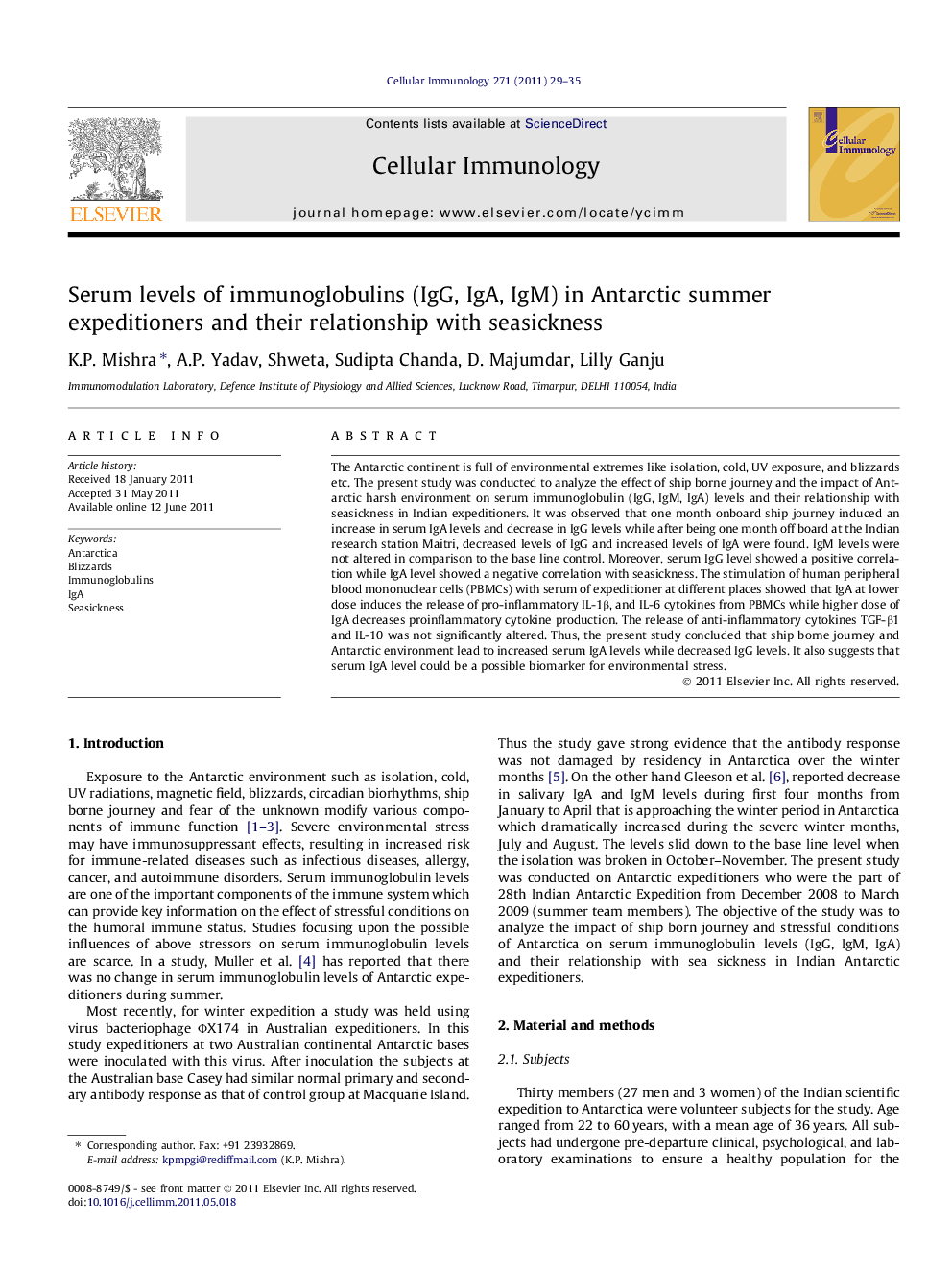| Article ID | Journal | Published Year | Pages | File Type |
|---|---|---|---|---|
| 2167318 | Cellular Immunology | 2011 | 7 Pages |
The Antarctic continent is full of environmental extremes like isolation, cold, UV exposure, and blizzards etc. The present study was conducted to analyze the effect of ship borne journey and the impact of Antarctic harsh environment on serum immunoglobulin (IgG, IgM, IgA) levels and their relationship with seasickness in Indian expeditioners. It was observed that one month onboard ship journey induced an increase in serum IgA levels and decrease in IgG levels while after being one month off board at the Indian research station Maitri, decreased levels of IgG and increased levels of IgA were found. IgM levels were not altered in comparison to the base line control. Moreover, serum IgG level showed a positive correlation while IgA level showed a negative correlation with seasickness. The stimulation of human peripheral blood mononuclear cells (PBMCs) with serum of expeditioner at different places showed that IgA at lower dose induces the release of pro-inflammatory IL-1β, and IL-6 cytokines from PBMCs while higher dose of IgA decreases proinflammatory cytokine production. The release of anti-inflammatory cytokines TGF-β1 and IL-10 was not significantly altered. Thus, the present study concluded that ship borne journey and Antarctic environment lead to increased serum IgA levels while decreased IgG levels. It also suggests that serum IgA level could be a possible biomarker for environmental stress.
► Serum IgA level could be a possible early stress indicator. ► The lower serum IgA level up-regulates pro inflammatory cytokines. ► Higher serum IgA level decreases proinflammatory cytokines level.
